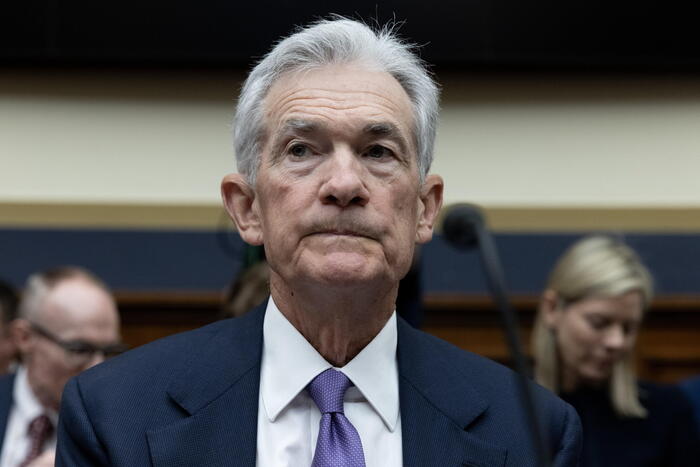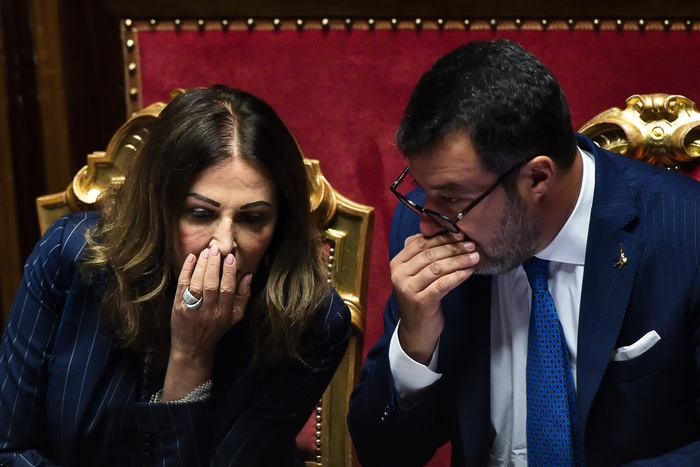Icon: enlarge
Bochum city center: shops remain open this time
Photo: Rupert Oberh ‰ user / imago images / Rupert Oberh ‰ user
For months it was something like the mantra of German politics: a second shutdown must absolutely be avoided.
Otherwise the powerful upswing in summer would come to an abrupt halt, and worse still, another deep plunge in the economy, as in the spring, is threatening, with unforeseeable consequences.
It is well known that things turned out differently.
Germany has been in a shutdown again since November 2, albeit in a less comprehensive one.
Schools, daycare centers and shops remain open, and industry is hardly affected this time.
Nevertheless: pubs and restaurants are closed again, hotels and fitness studios, events and tourist trips are also prohibited.
And it will stay that way for longer;
The federal and state governments have recently given up hope that November with restrictions alone will be enough.
The people in Germany seem to be aware of the negative economic consequences of this development, but to assess them comparatively calmly.
This is shown by the SPIEGEL economic monitor, for which the opinion research institute Civey continuously surveys the population on a representative basis.
This long-term survey makes it possible to classify the current expectations of citizens with regard to general and personal economic development, their fears and concerns and their priorities.
At the beginning of October, the mood was almost back to normal, similar to that before the pandemic - "Germans are leaving Corona worries behind," was the headline at the time.
But only days later, the concerns increased again, as the
assessment of the current economic situation
shows - the proportion of those who rated the situation as good fell from 46 to 37 percent by the beginning of November;
the proportion of those who rated the situation as bad rose from 33 to 37 percent.
Compared with the first shutdown in spring, the repeated restrictions only caused a slight deterioration this time.
And what's more: since the beginning of November, citizens' view of the economic situation has been more positive again - in line with initial indicators that show that the second shutdown is significantly less of a brake on the economy than the first.
On closer inspection, another conclusion is obvious: For the assessment of the economic situation,
not only the shutdown measures per
se, but also the
development of the number of infections
seem
to play an important role.
Because the values in the graphic do not show the mood on a specific day - but rather that of a 30-day period before that.
Specifically, the low point of the assessment on November 6th describes the mood in the period from October 7th to November 6th.
During this time, the daily number of infections rose rapidly and exponentially;
the November shutdown was not decided until October 28th.
Therefore, only the most recent values fully reflect the mood since this decision.
With regard to the labor market, it is noticeable that the second shutdown has increased
concerns about job loss
again.
In March and April this concern had increased dramatically, 20 percent of those surveyed with a job expressed the fear of losing their job within a year - almost twice as much as in normal times.
After that, this proportion fell again significantly and was for a long time at 13 percent - but now it has grown again to 15 percent.
At the same time, the proportion of employees who consider their job to be secure has decreased somewhat, and the proportion of those who cannot really assess it has increased.
The status of the pandemic is reflected in the forecast of
economic development in the next twelve months
even more clearly than in the current situation
.
Here, the prospects for people in Germany clouded over significantly, parallel to the sharp rise in the number of infections, but some confidence returned during the shutdown - although it should be noted that Germans are traditionally more pessimistic about the near future.
In absolute terms, more than twice as many people expect the situation to deteriorate as to improve the situation.
Nevertheless, the trend on this question is clearly upwards.
That may
have to do
with the
good news about vaccines,
too.
November 9 is marked in the graphic, the day on which the companies Biontech and Pfizer announced the surprisingly high effectiveness of their vaccine in studies.
The fact that the Germans remain relatively relaxed in the second shutdown becomes
clear
when asked about
the most urgent need for action
in economic and social policy.
The "most important topic" is specifically not asked here.
There is a big difference: a problem can be rated as the most important thing without the need for action being seen - if the feeling prevails that enough is already being done to solve it.
With the increase in the number of infections, the area of "health and care" has now moved back into the top three, which has meanwhile been mentioned much less frequently.
The most urgent topic, however, continues to be one that was always at the top before the pandemic: economic and social inequality with 20 percent of the mentions.
For a long time, the Germans clearly seemed to view the corona crisis as a short to medium-term exceptional situation - and not as a system-threatening structural crisis.
Because when asked what their
personal economic situation
will likely be
in five years'
time, even after the start of the pandemic, they answered almost exactly the same as before.
By and large, this is still the case, but there is now a slight change: The proportion of those who expect a negative economic future for themselves has not increased - it is stable at a quarter.
But the proportion of optimists has since decreased and has always been below the 20 percent mark since October.
The proportion of those who believe that five years from now will be little different from what they are today has risen to the same extent.
The second shutdown made an impression on people in Germany in terms of their perception of the economic situation.
However, concerns about the own and general economic situation have grown much less than in the first shutdown in spring - and are now also on the decline.
Icon: The mirror








